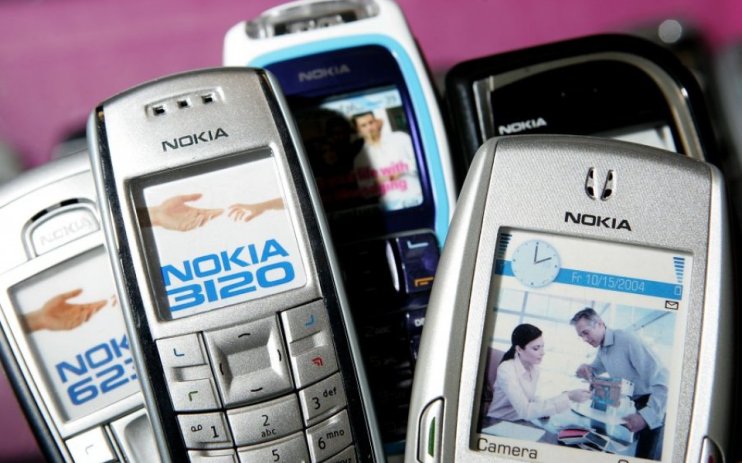In Defence of Capitalism: Why Nokia and MySpace lost their monopolies

Each week, Dr Rainer Zitelmann mythbusts the arguments against capitalism. This week, it’s the idea that capitalism creates monopolies – but looking at Nokia and MySpace amongst others suggests otherwise
In an international survey on popular perceptions of capitalism, which I commissioned for the book In Defence of Capitalism, one of the main criticisms levelled at capitalism was that it leads to monopolies. And this is true. Capitalism can lead to monopolies. But it is also true that nothing destroys monopolies more effectively than capitalism.
Monopolies appear indestructible at the height of their power, but they are far from eternal. Today, many people believe that giants like Amazon and Google are so dominant they could only ever seriously be challenged by government anti-trust policies. However, history teaches us that monopolies are much less durable than most people believe.

The social network Myspace was founded in 2003 and quickly gained millions of users. By June 2006, Myspace was the most-visited website in the U.S., even ahead of Google. In 2007 The Guardian asked, “Will Myspace ever lose its monopoly?” By early 2008, Myspace had a 74.4 per cent share of the social network market, and by December 2008, it had 75.9 million visitors in the United States alone. But just six months later, Facebook overtook Myspace in the U.S., and the company’s market share had fallen to just 30 per cent by the end of 2009. Today, Myspace has become almost entirely irrelevant.
In November 2008, Forbes magazine ran a major story on the mobile phone manufacturer Nokia. The cover story’s headline read “One Billion Customers – Can Anyone Catch the Cell Phone King?” After consistently being the world’s largest mobile phone manufacturer from 1998 to 2011, Nokia was overtaken by Samsung in the first quarter of 2012 as the South Korean company took an estimated 25.4 per cent share of the market. Nokia still accounted for a respectable 22.5 per cent of the market and Apple had 9.5 per cent.
Nevertheless, Nokia’s share had fallen by more than a third since 2008. Strikingly, Nokia developed the world’s very first smartphone in the 1990s, but it did not appreciate the importance of apps to mobile phone users until it was too late. In 2013, Microsoft bought Nokia’s cell phone division, which at the time had a global market share of just three per cent.
Another example is Xerox, which invented the first photocopier in 1960 and dominated the market in 1970 with a market share of almost 100 per cent. Just as people today say “I’ll Google it” when they search the internet, people back then referred to “Xeroxing” whenever they photocopied something. In 1973, Xerox was accused of violating antitrust laws and a drawn-out legal battle ensued.
But back then – more so than today – the problem was settled by the market, as companies such as IBM, Eastman-Kodak, Canon, Minolta, Ricoh and others all launched smaller and cheaper photocopiers. These competitors developed machines that used low-maintenance liquid toner and were built with inexpensive, standardised parts. They were sold through ordinary office supply stores rather than through an expensive proprietary network. All of a sudden, the Japanese were selling low-end copiers at prices below the manufacturing cost of Xerox’s machines, while Xerox wanted to continue making money on copy volume like a reliable subscription, as it had always done. Today, Xerox is stuck on less than two per cent of the global photocopier market.
And in 1976, Kodak held over 90 per cent of the U.S. film market and 85 per cent of the U.S. camera market. Kodak fully underestimated the shift to digital cameras, before the market evolved again to come to be dominated by high-spec smartphone cameras. In 2012, the company filed for bankruptcy and later tried its luck with other business models.
Competition and monopoly are not absolute opposites, but they are a dialectical contradiction: competition creates monopoly because the best product prevails. High monopoly profits attract new competitors, who gradually destroy the monopoly, but at a certain point may themselves temporarily become a monopoly, only to be destroyed again by their competitors. It is only in the case of public monopolies that this cannot happen, since government power prevents it from being subject to competition.
Monopolies that are not public monopolies will typically disappear sooner or later because the monopolists become overly bureaucratic as they grow larger, they are subject to minimal competitive pressures, and their mentality becomes more and more like that of government-owned enterprises.
Rainer Zitelmann is a historian and sociologist. His book In Defence of Capitalism has just been published. https://in-defence-of-capitalism.com/